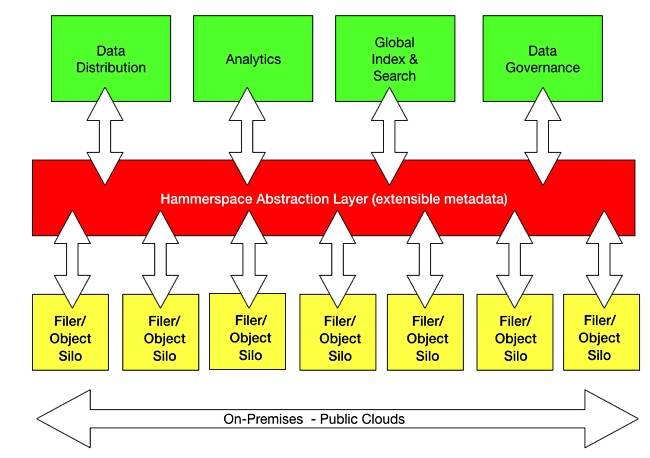Hammerspace has added data management facilities to deploy stateful apps across multiple Kubernetes clusters, on premises or in the cloud.
Kubernetes is the popular orchestration tool for managing containers – application micro-services. These are naturally stateless – any data used dies with the container. Storage – persistent data – has to be added when needed. Several suppliers, such as Datera, IBM, and Pure Storage, have enabled their storage array to be used by containers orchestrated by Kubernetes. This makes the containers stateful – state is saved when they die.
Hammerspace says databases such as MySQL and MongoDB require persistent data to be accessible from any cluster across the hybrid multi-cloud as they burst-to-cloud and back. Hammerspace can provide that accessibility and says it makes file data cloud-native.
It’s Hammerspace time
Hammerspace is a Silicon Valley based startup that came out of stealth in October 2018. The SaaS company unifies distributed file silos into a single network-attached storage (NAS) resource. It can serve applications access to unstructured data in on-premises private, hybrid or public clouds, on demand.
Its software farms existing file storage metadata and provides data management services via a data control plane. Hammerspace supports file and object distribution across multiple clouds and locations, global search, stored item reporting and analytics applications.

Now it can serve data to Kubernetes too, to help DevOps deploy Data-as-a-Microservice and scale stateful containerised apps across Kubernetes clusters.
David Flynn, CEO of Hammerspace, said in a press release announcing Kubernetes support: “Data must be abstracted from the infrastructure and managed at file-level granularity. With Hammerspace, logic and contextual information can be stored as metadata for each data object, making data programmable and declarative, allowing developers to orchestrate the deployment of data along with their other microservices as they scale-out their apps.”






